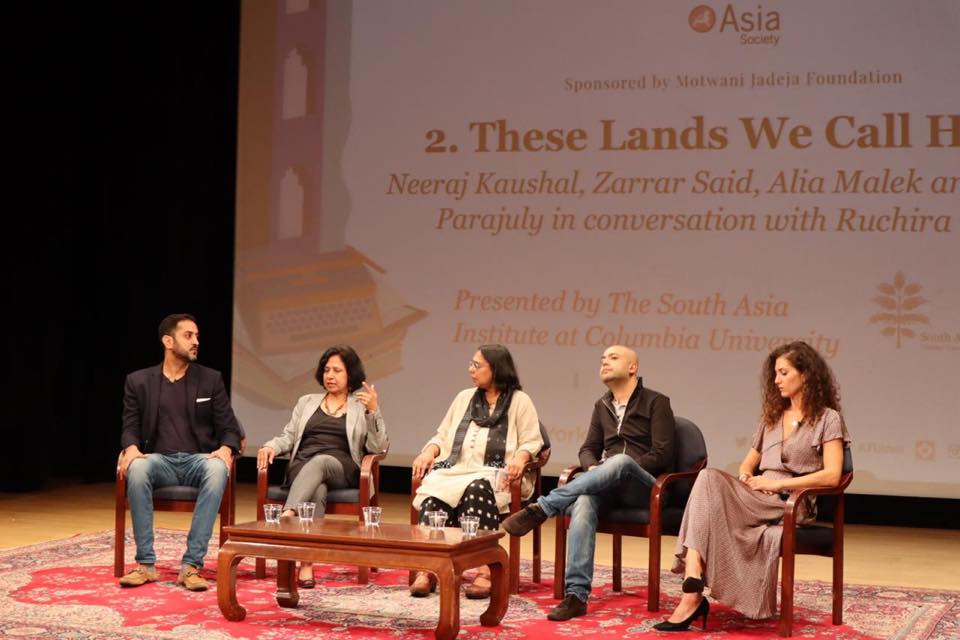


These Lands We Call Home: Neeraj Kaushal, Zarrar Said, Alia Malek and Prajwal Parajuly in conversation with Ruchira Gupta
“What does home mean to you?â€, Ruchira Gupta, a feminist, writer and academic asked. The question gathered diverse responses from a panel comprising of Zarrar Said, author of the powerful novel Pureland; Neeraj Kaushal, Professor of Social Policy at Columbia University; Prajwal Parajuly, author and independent writer and Alia Malek, journalist and former civil rights lawyer.
Home is mobile for Zarrar Said- it is nostalgia, sorrow and expressions of love; home is a place you can tell stories about effortlessly. “Most of us carry the luggage of our past- storytelling is one way of unfolding it,'' he said.
“Home is where I live,'' Neeraj Kaushal said. She spoke about choosing to migrate to the United States - for many years, home was a figment of her dreams, a memory of a particular bookshelf from her childhood. For Prajwal Parajuly, home could be in the United Kingdom, Nepal or Sikkim; but home is the mountains of Sikkim. For Alia Malek, home is a function of her privilege - given that for the refugees of the world today, who have been exiled due to conflict or natural calamities, home is an unattainable concept. To be able to identify and go back to a permanent, geographical space and call it home, she said, is a privilege.
When does home become unattainable? Where does exile come from? Is it something imposed on an individual from within or from the outside? As the panel explores the answers to these questions, it becomes clear that the world and its people are in a constant state of movement- home has become an increasingly elusive concept. While Zarrar Said expressed that exile from one’s homeland could become permanent when one chooses to leave, Alia Malek and Prajwal Parajuly pointed out that often, exile is statelessness, as in the case of the ongoing Syrian refugee crisis and the exile of the Nepalese community from Bhutan.
Change is the only constant- as Ruchira Gupta pointed out, this is easy to accept until things actually begin to change. It is then that one realises that home wasn’t just a piece of land. It was nostalgia for the jasmines and narrow alleys in Syria, it was the mountain air in Sikkim and Nepal. It was the memory of the language you spoke to your mother, a language you still dream in. It is the sorrow you feel for a land that refuses to accept you, one that you long to return to. Once upon a time, home was where the heart was- but today, we find increasingly that it is where the heart longs to be.



1 Comments
Marc Grossberg
Is there a recording or link to the Black Holes presentation by P. Natarajan
ReplyLeave a comment